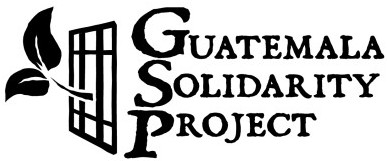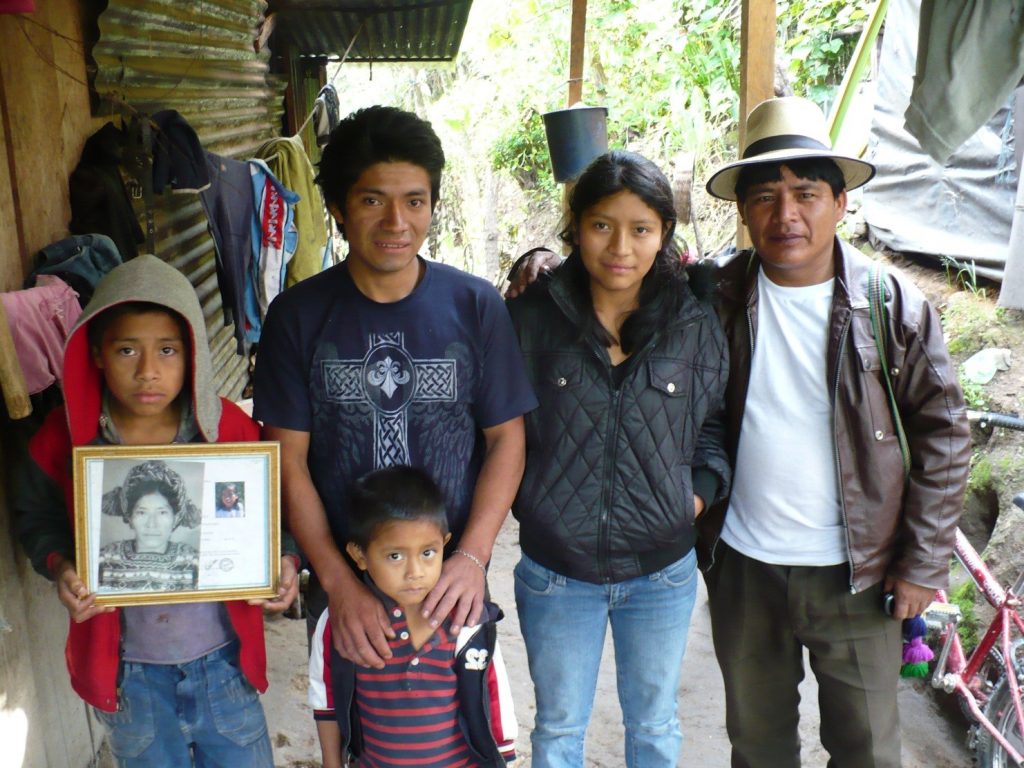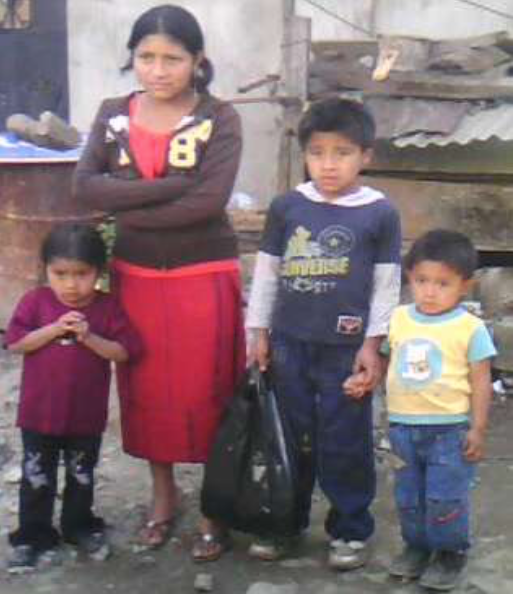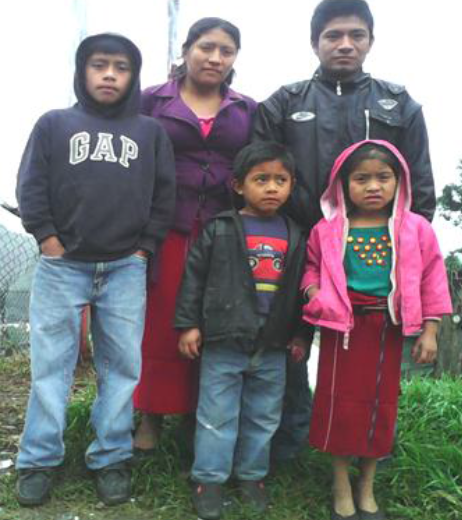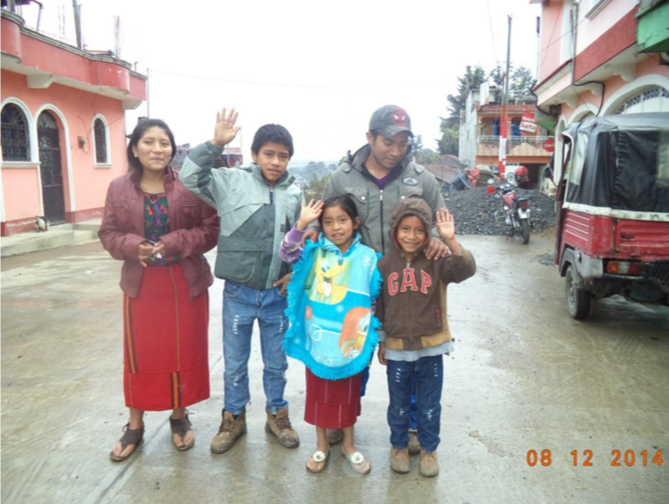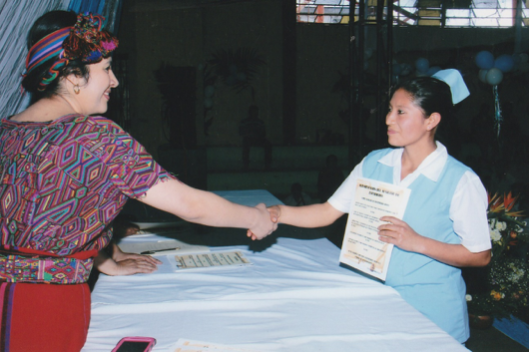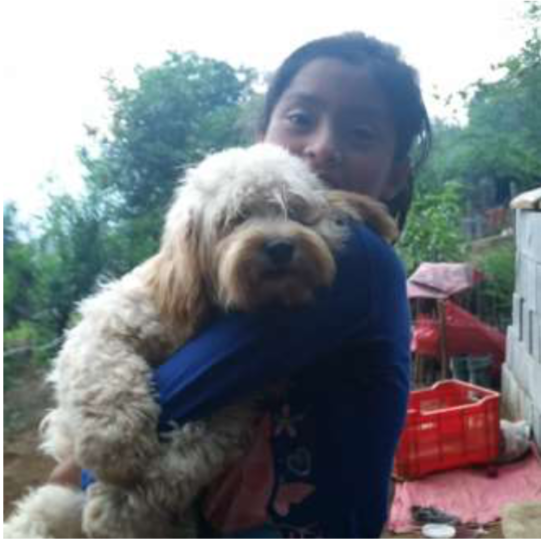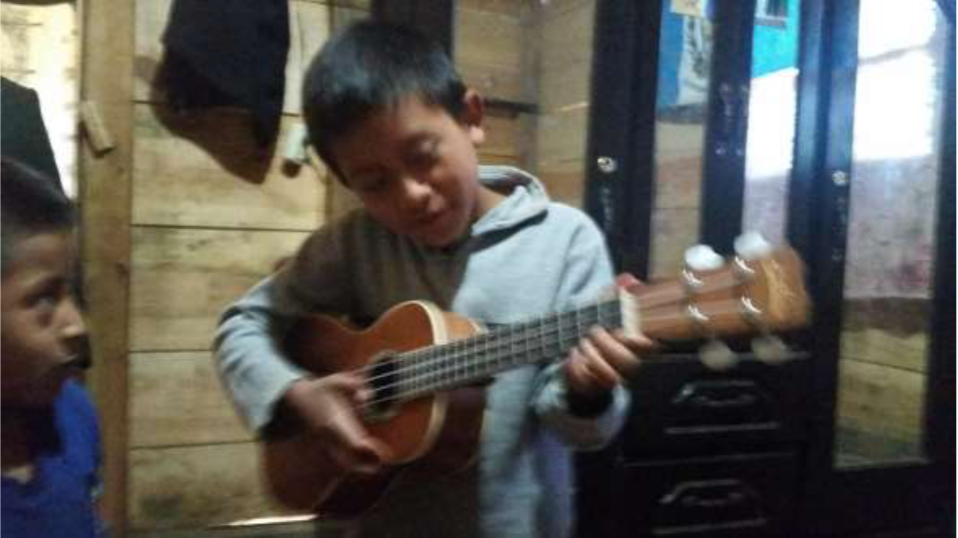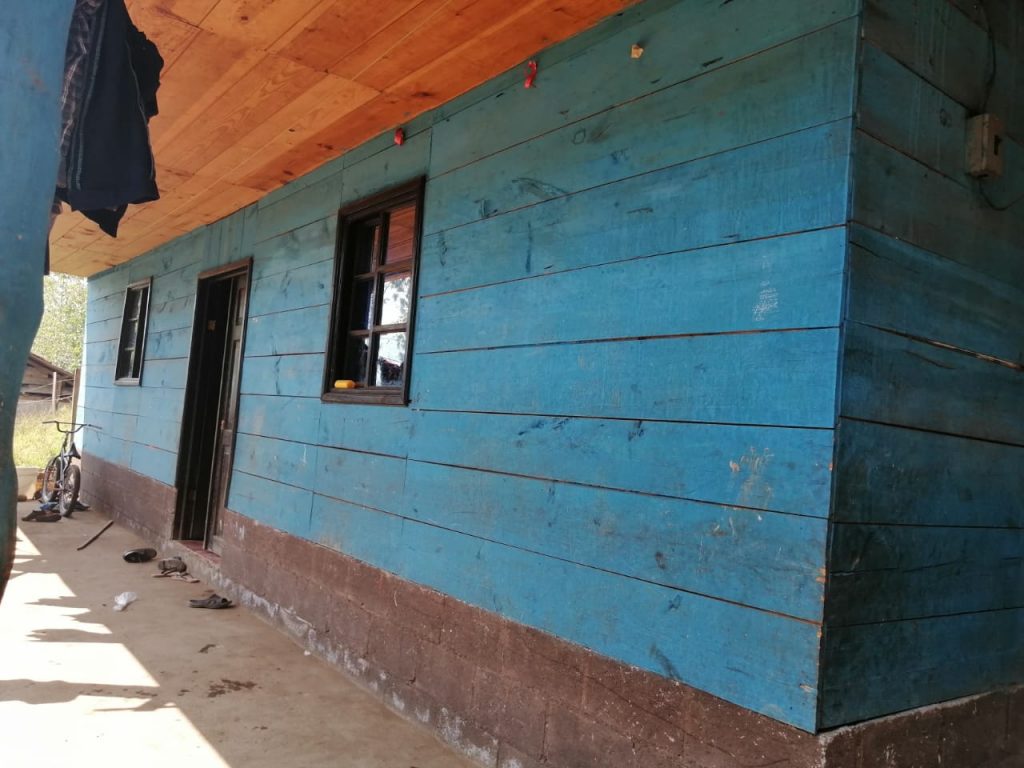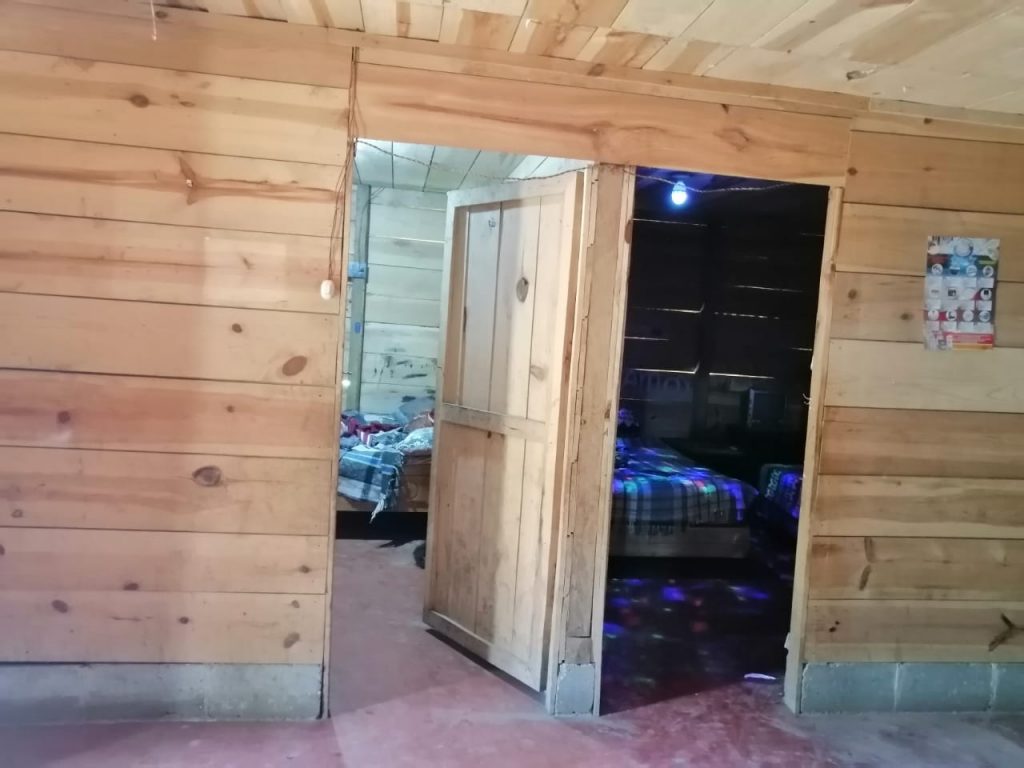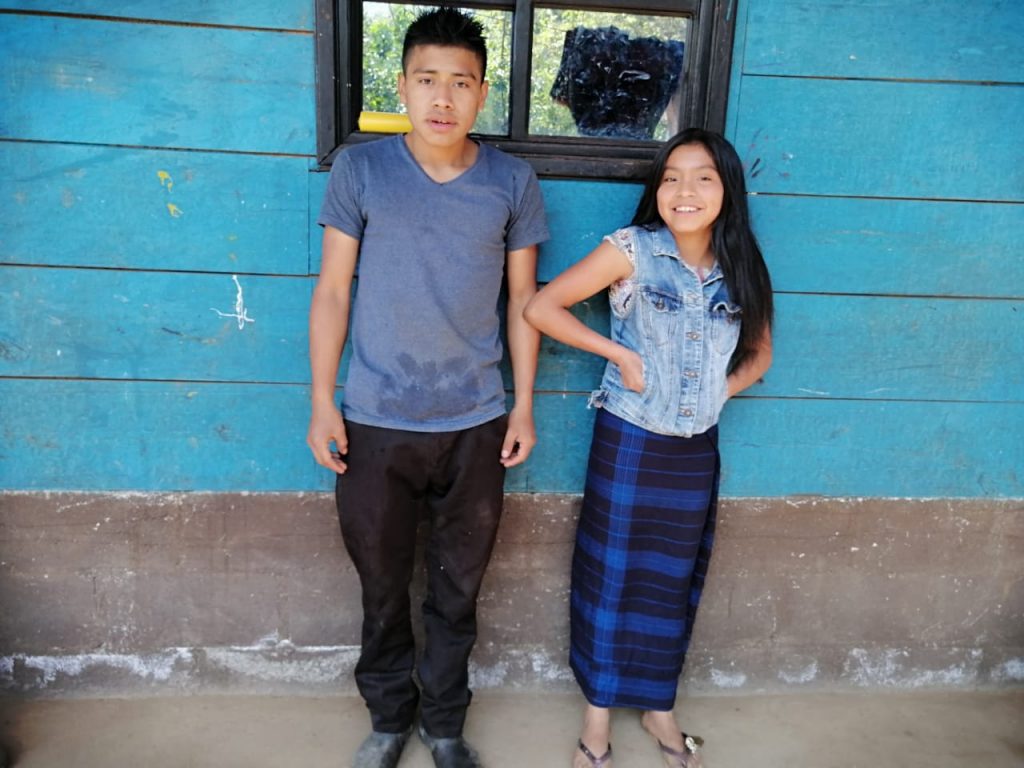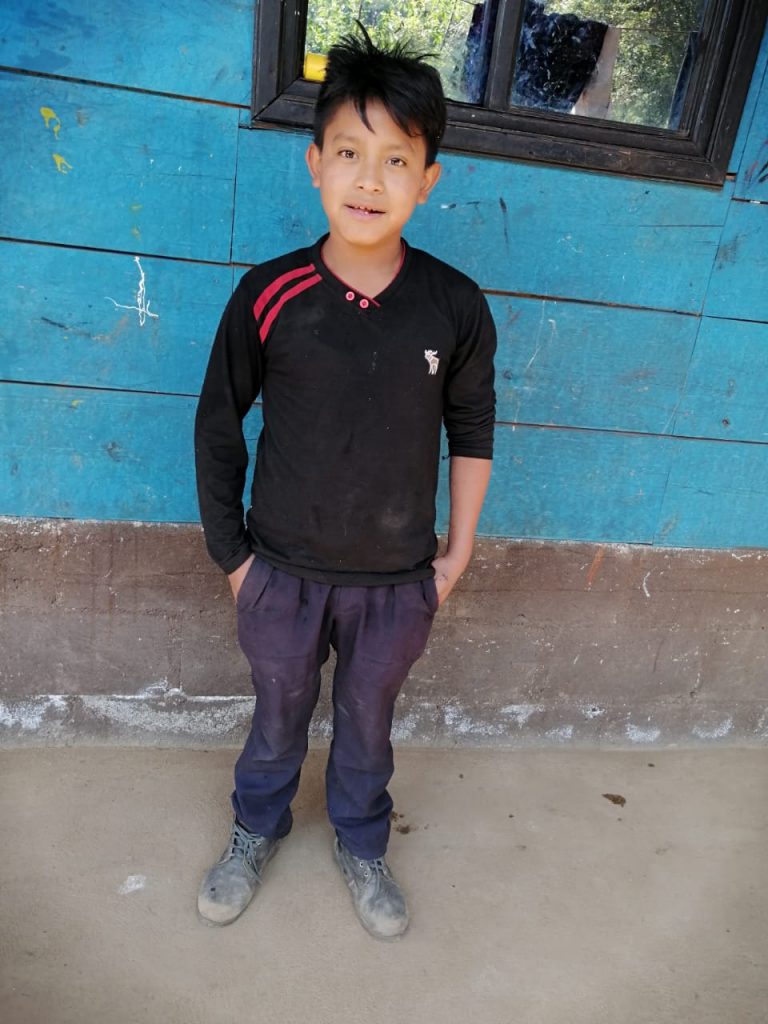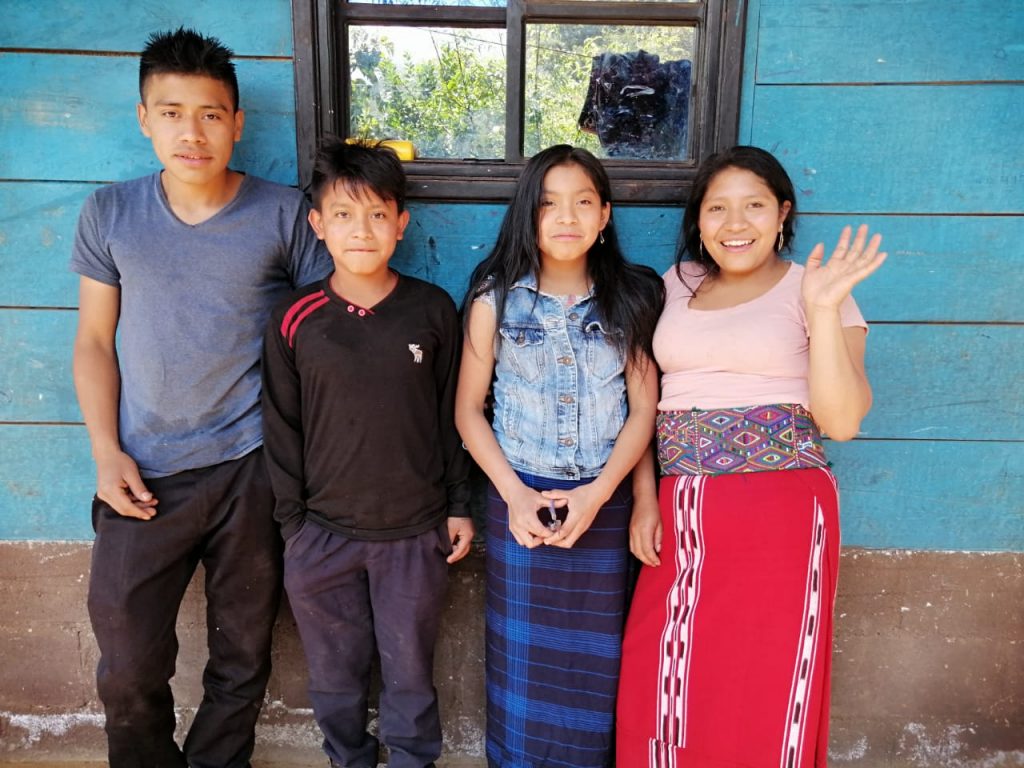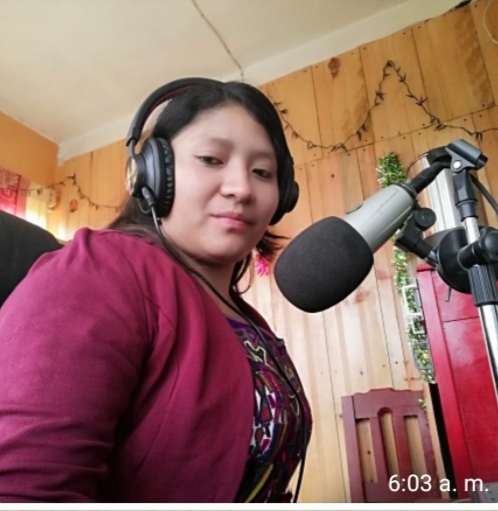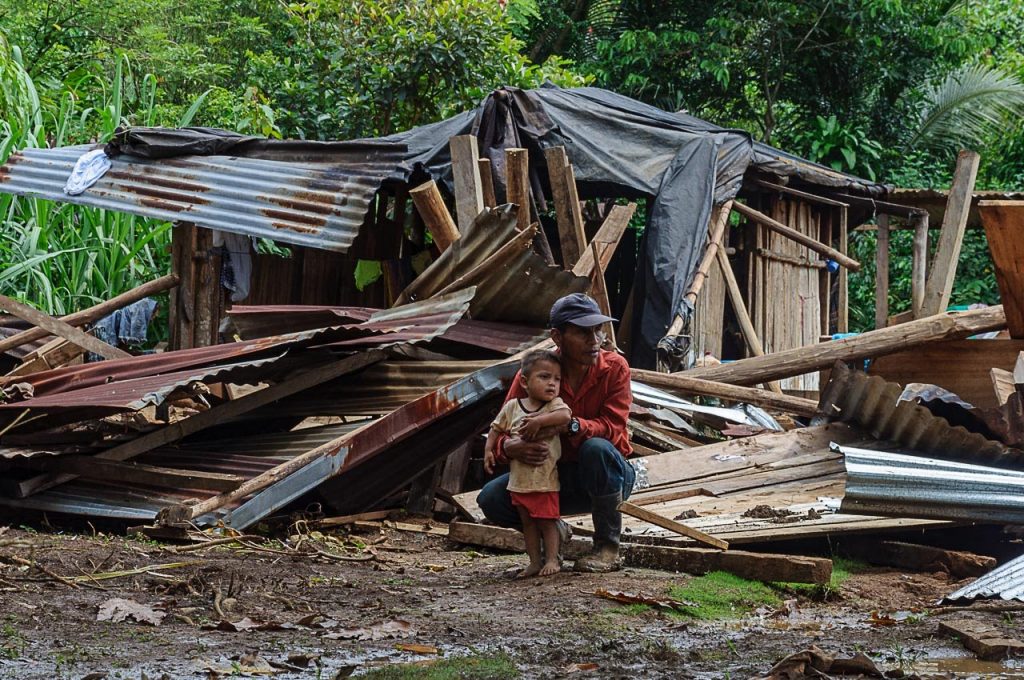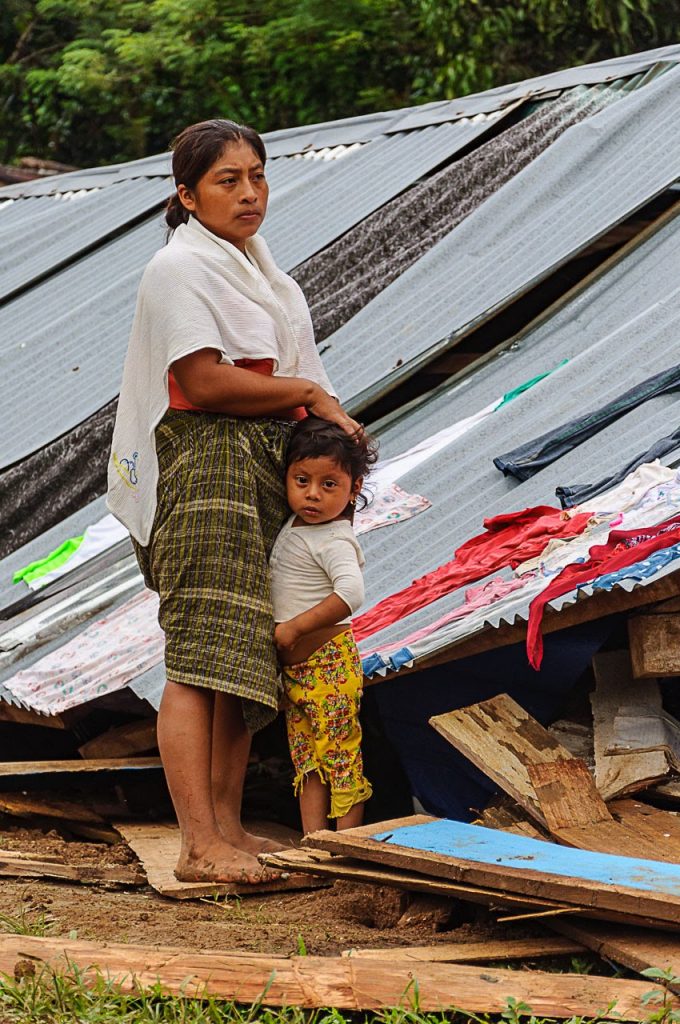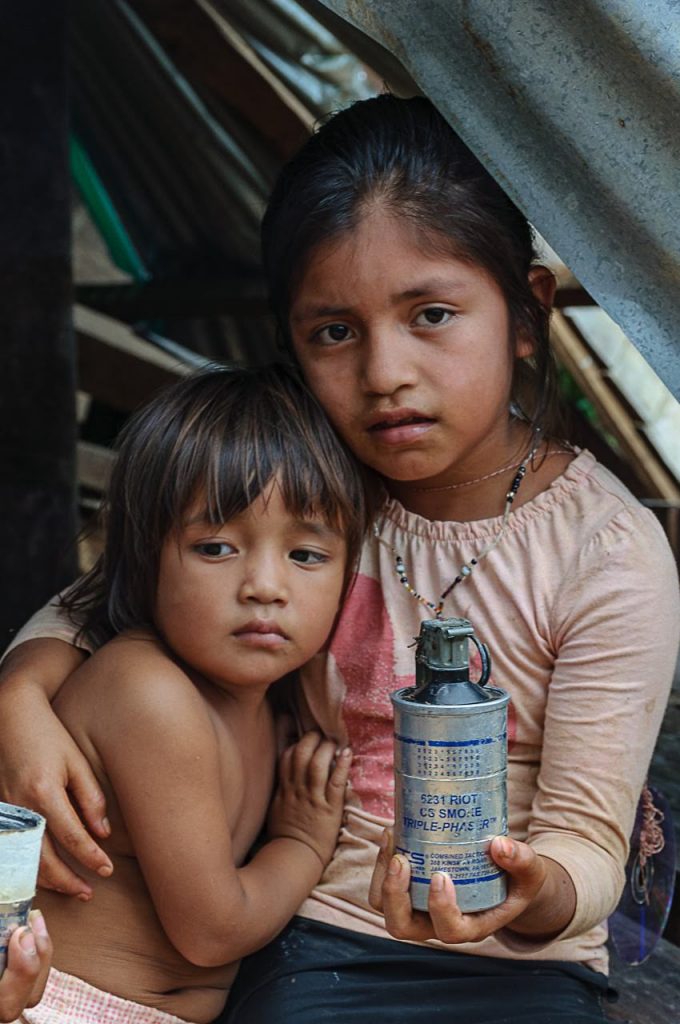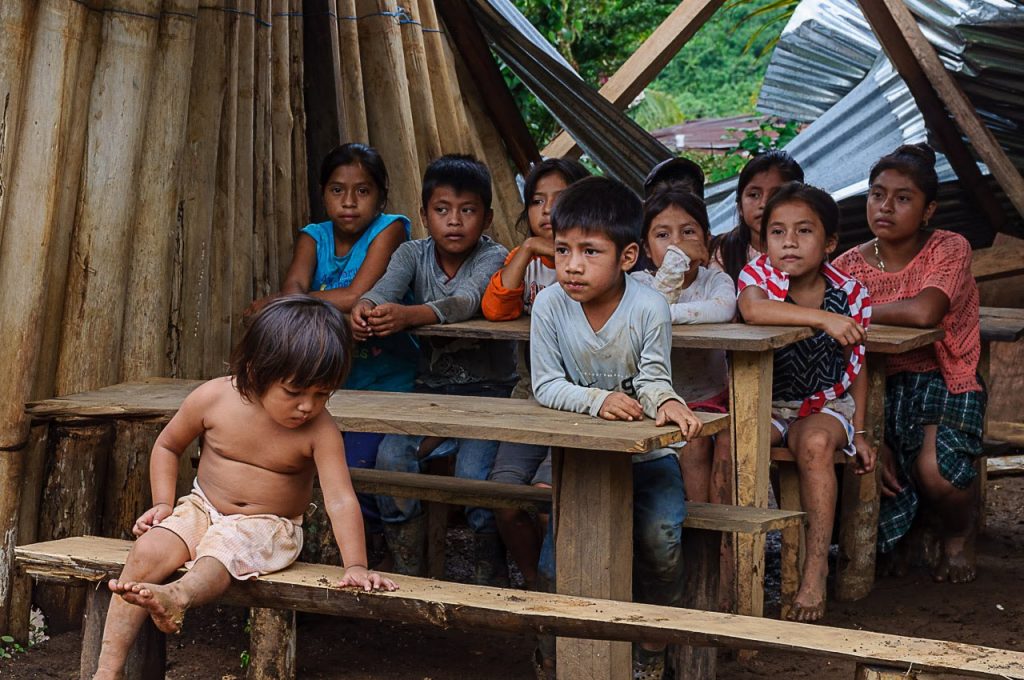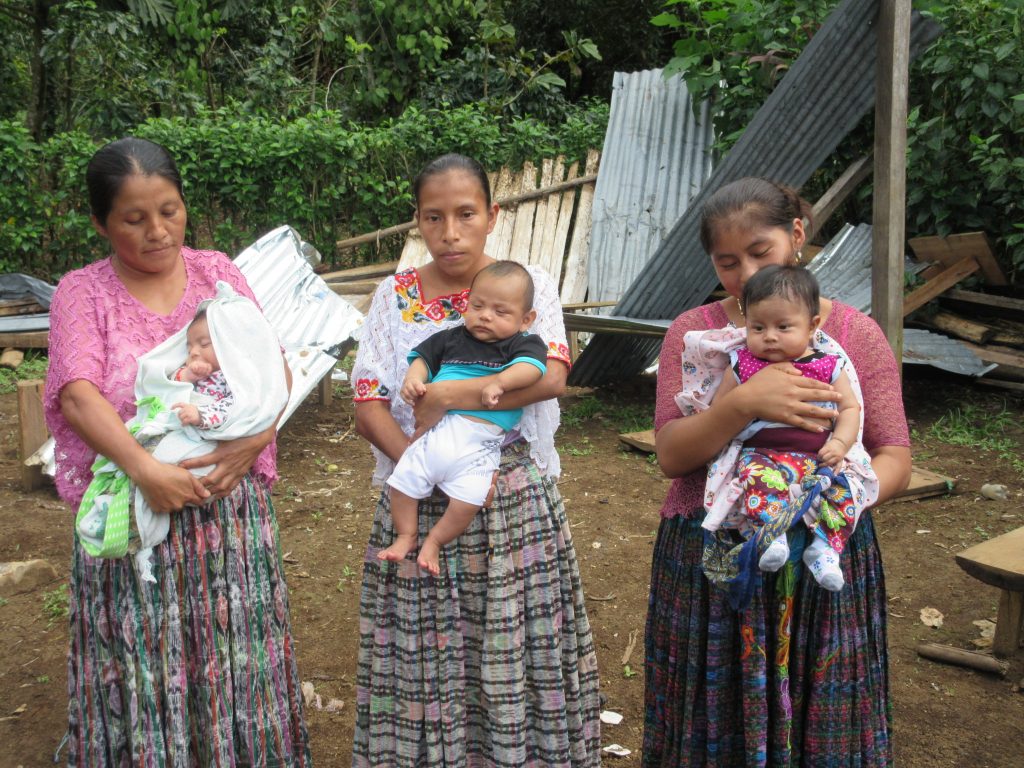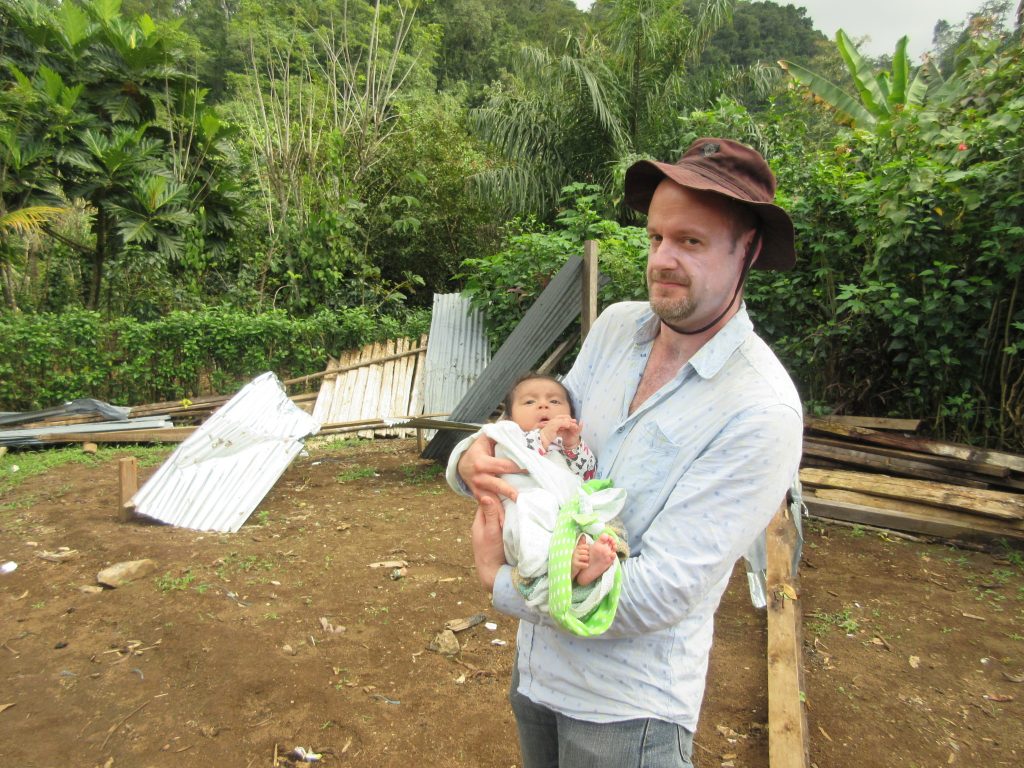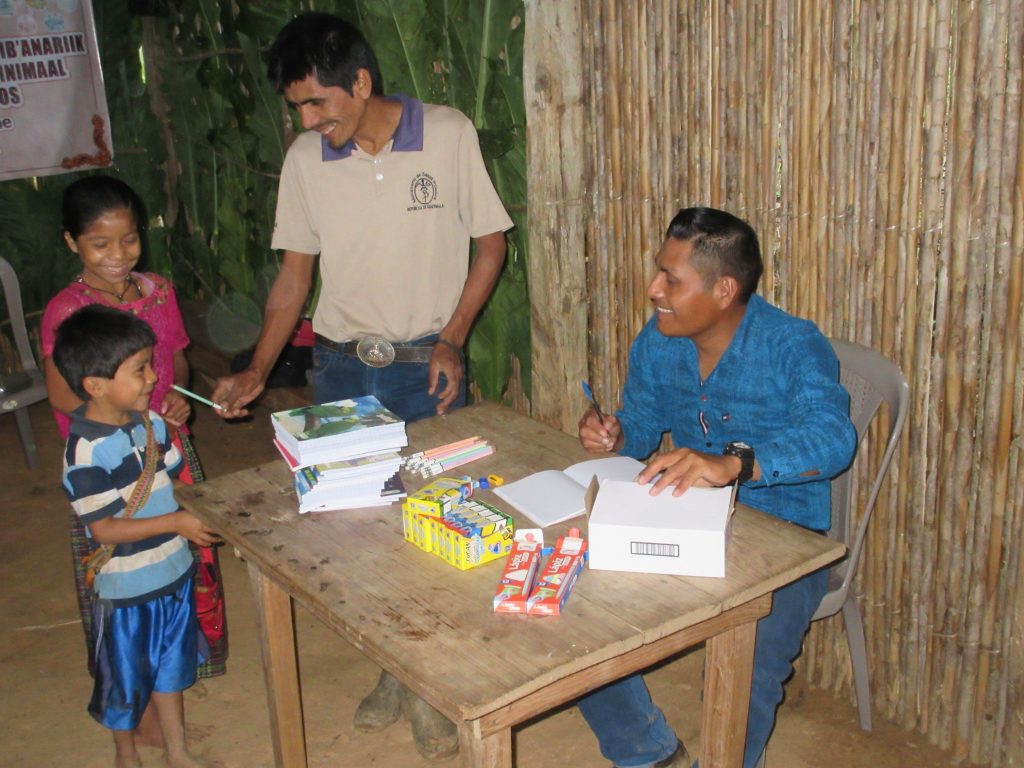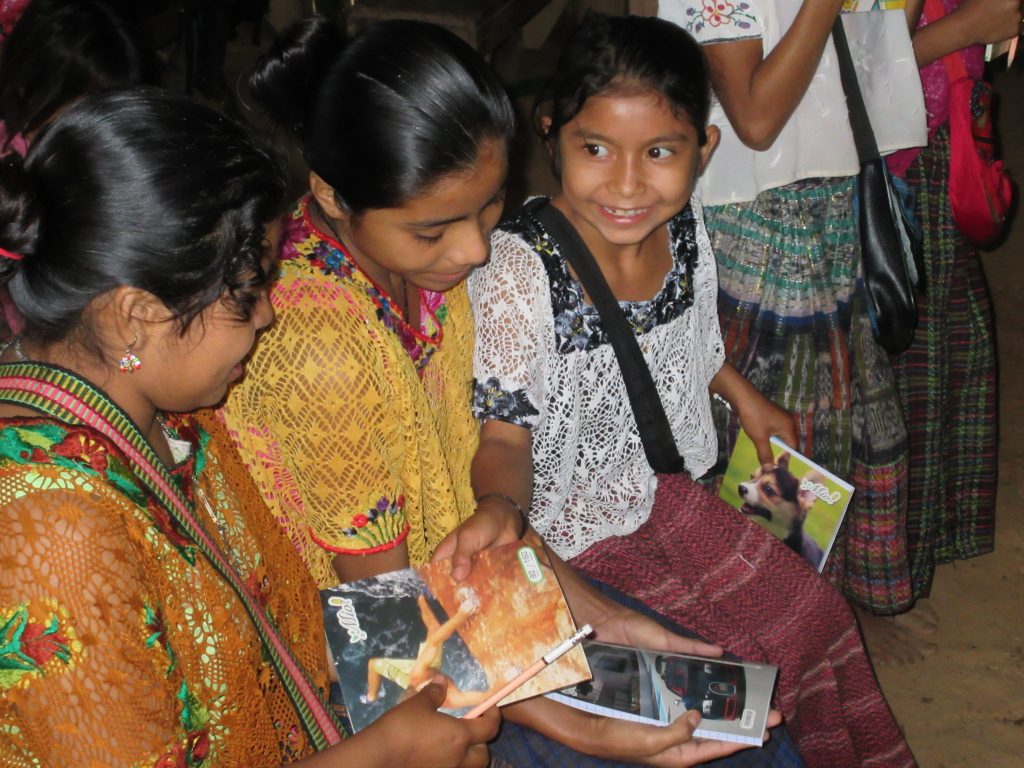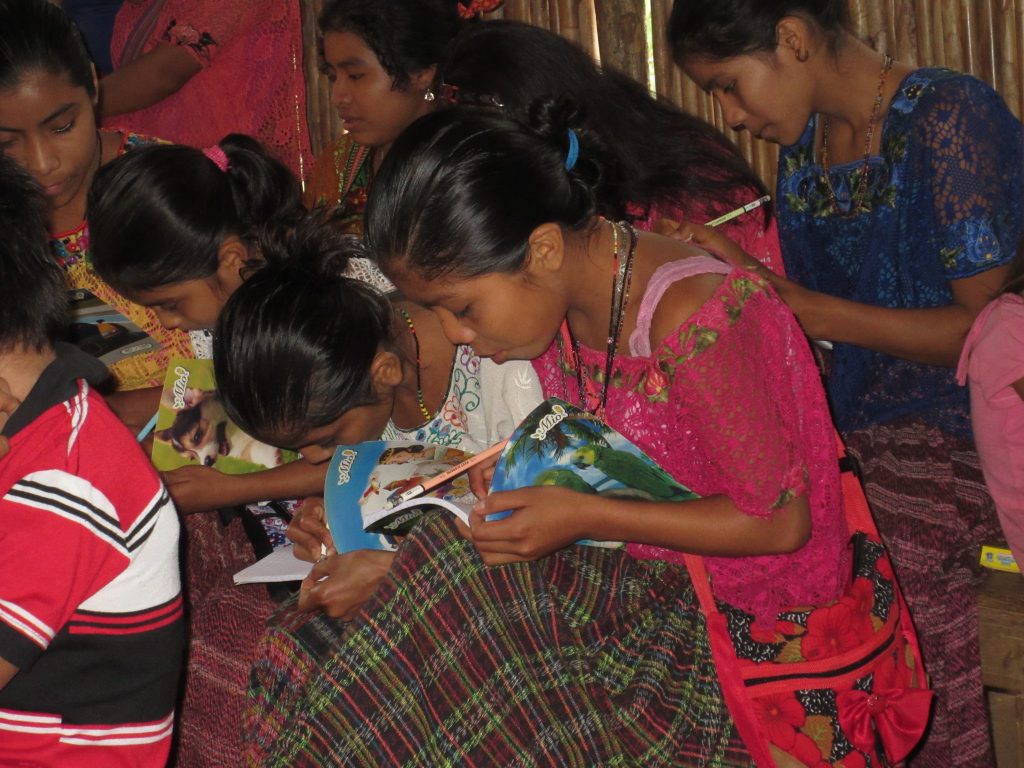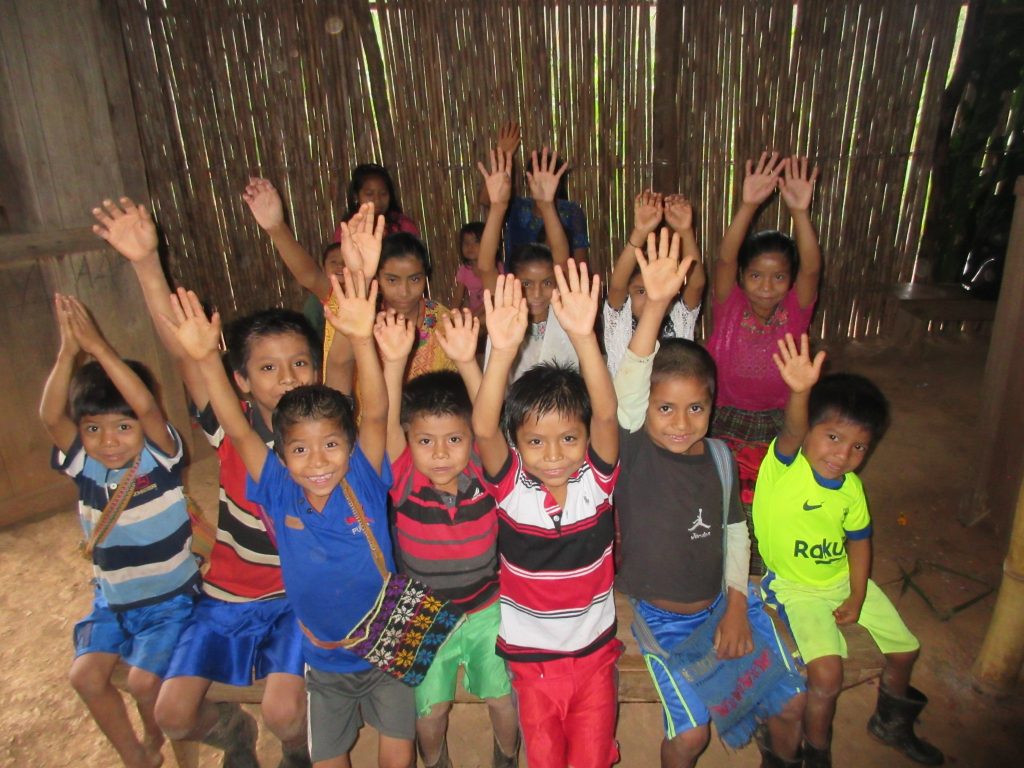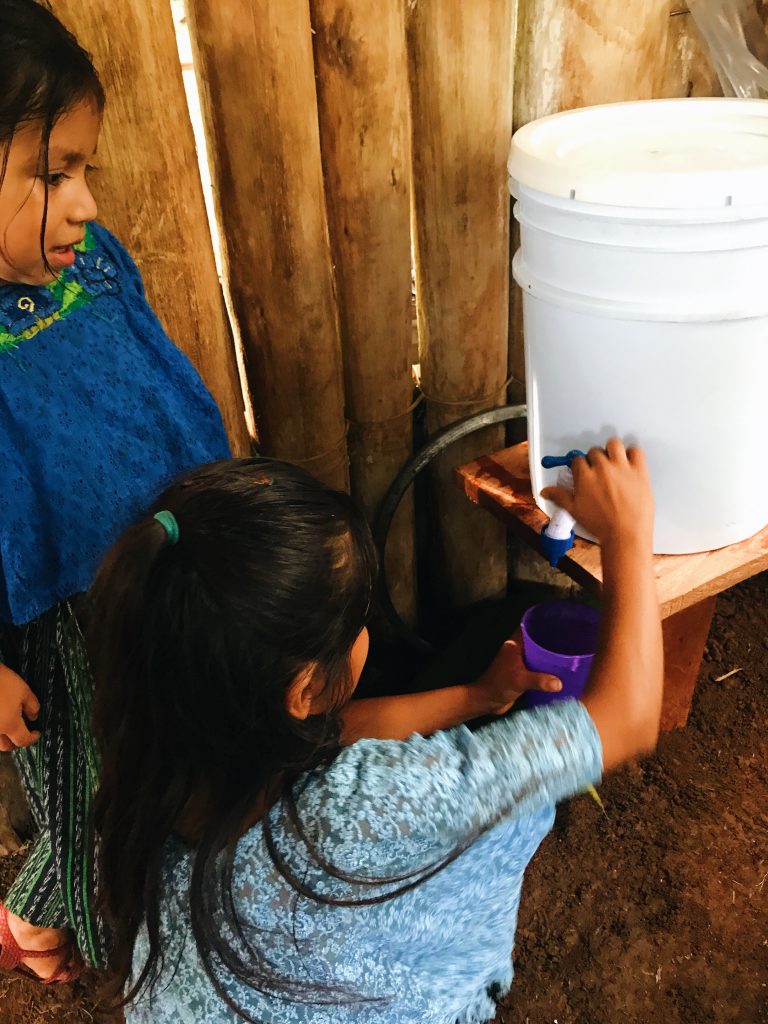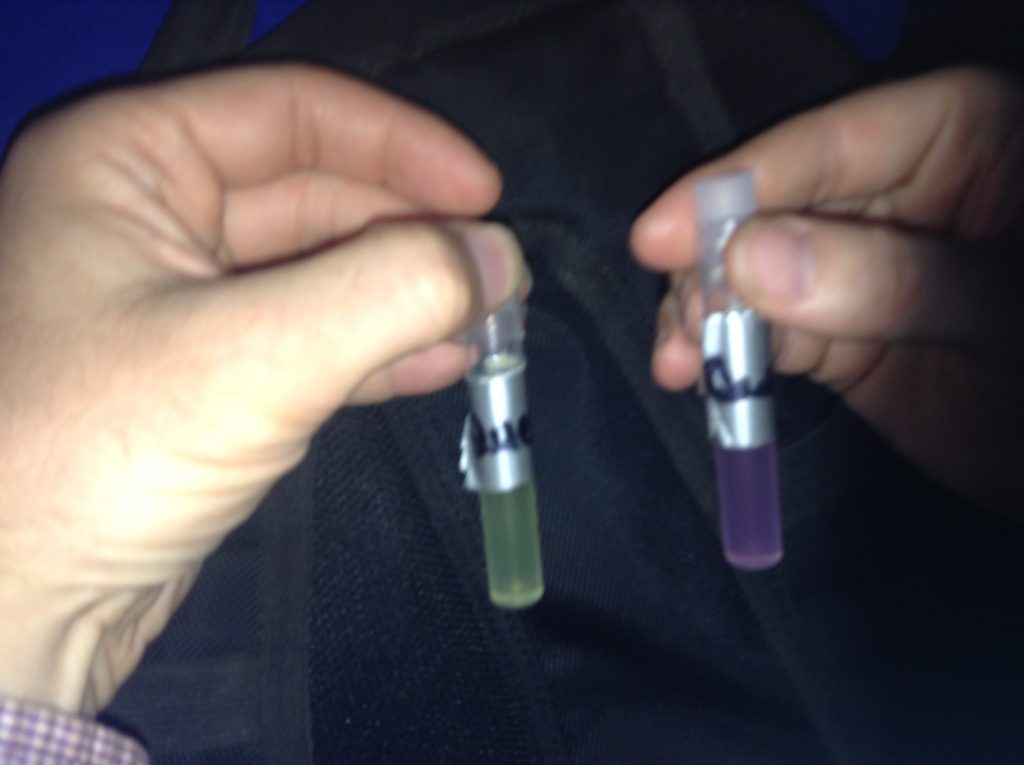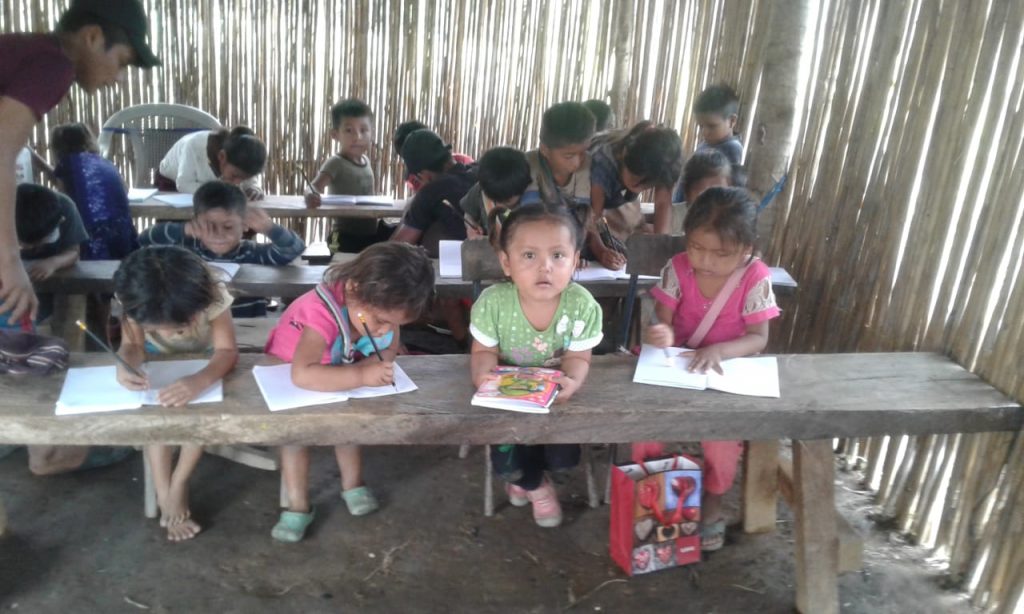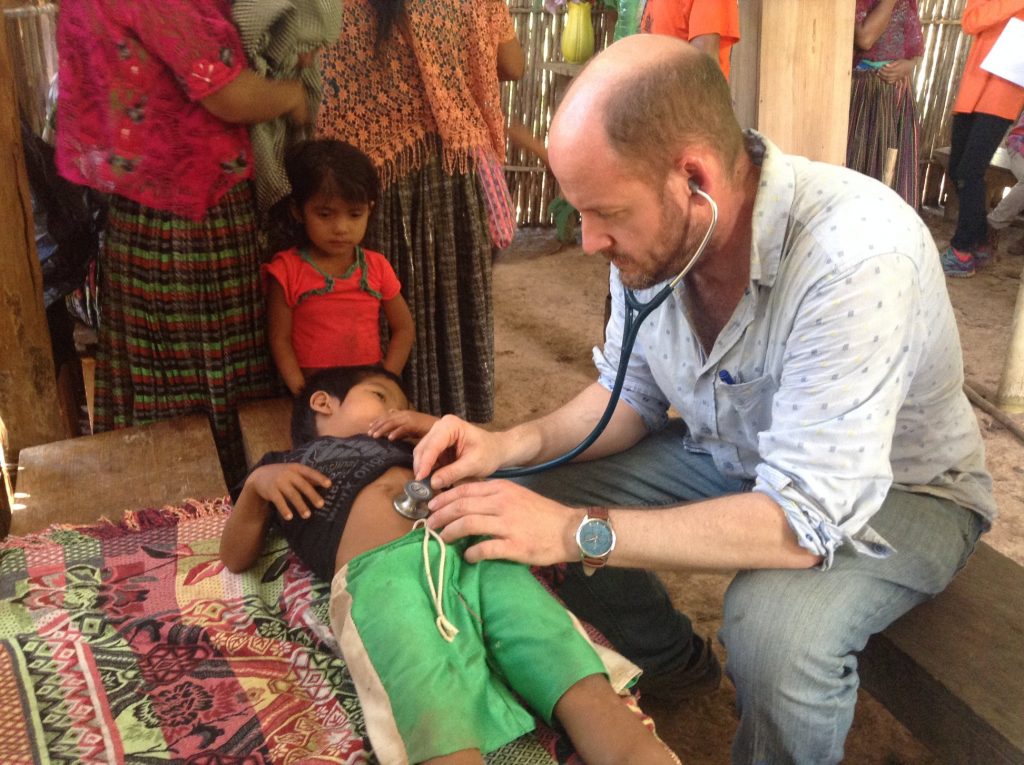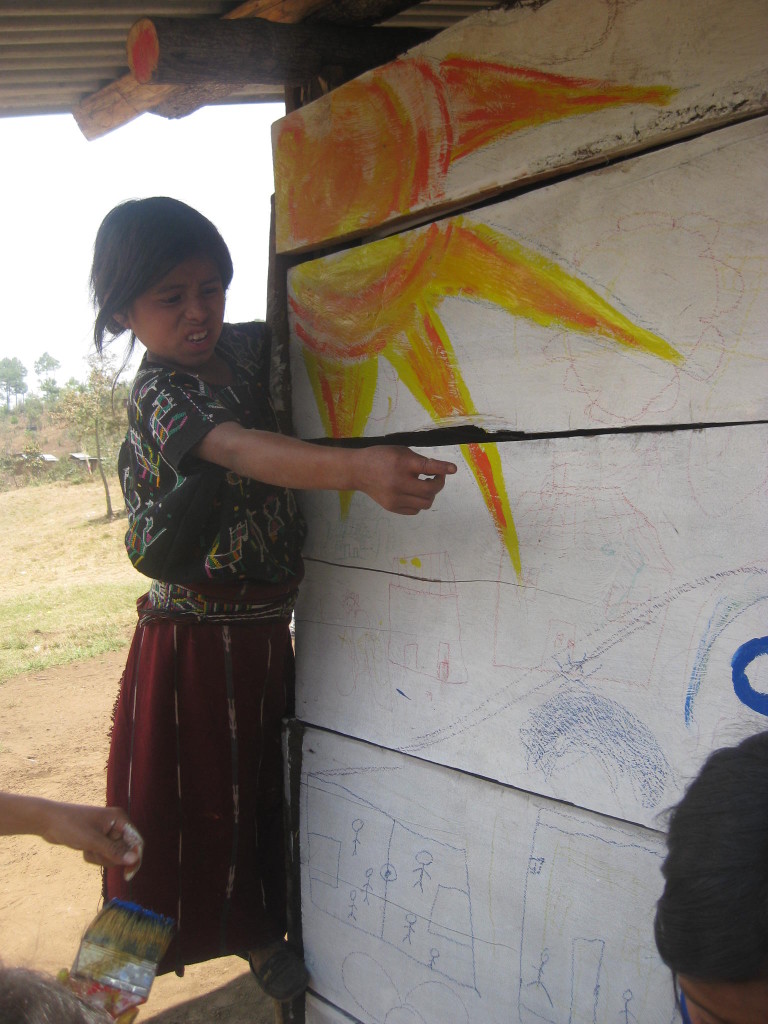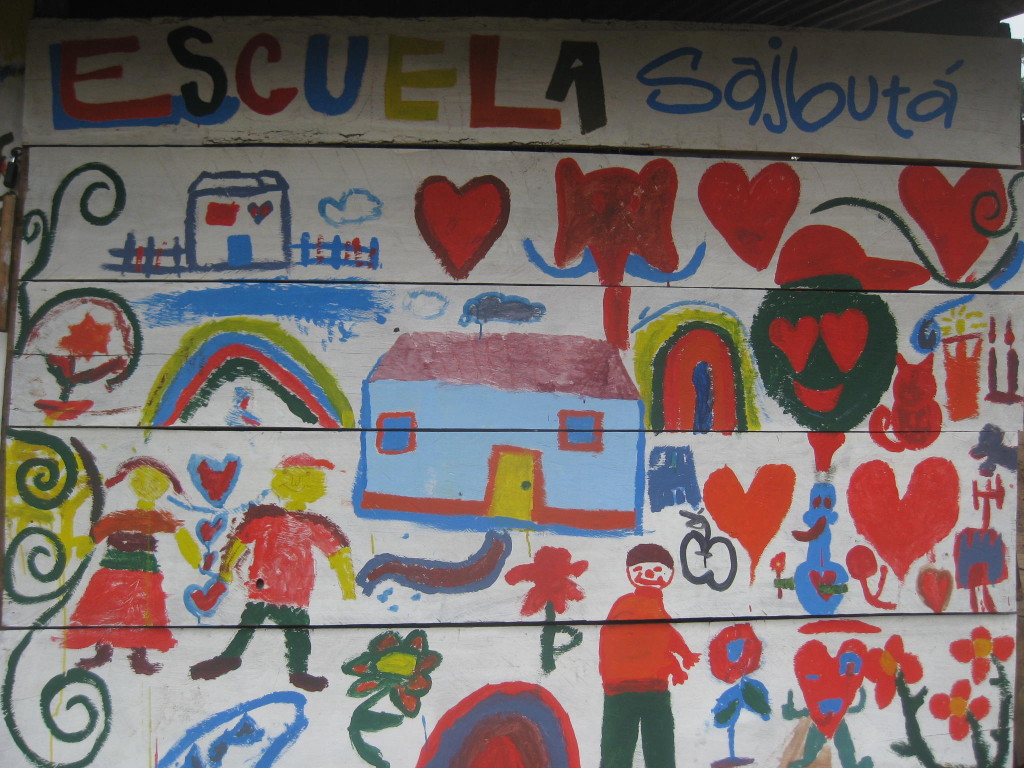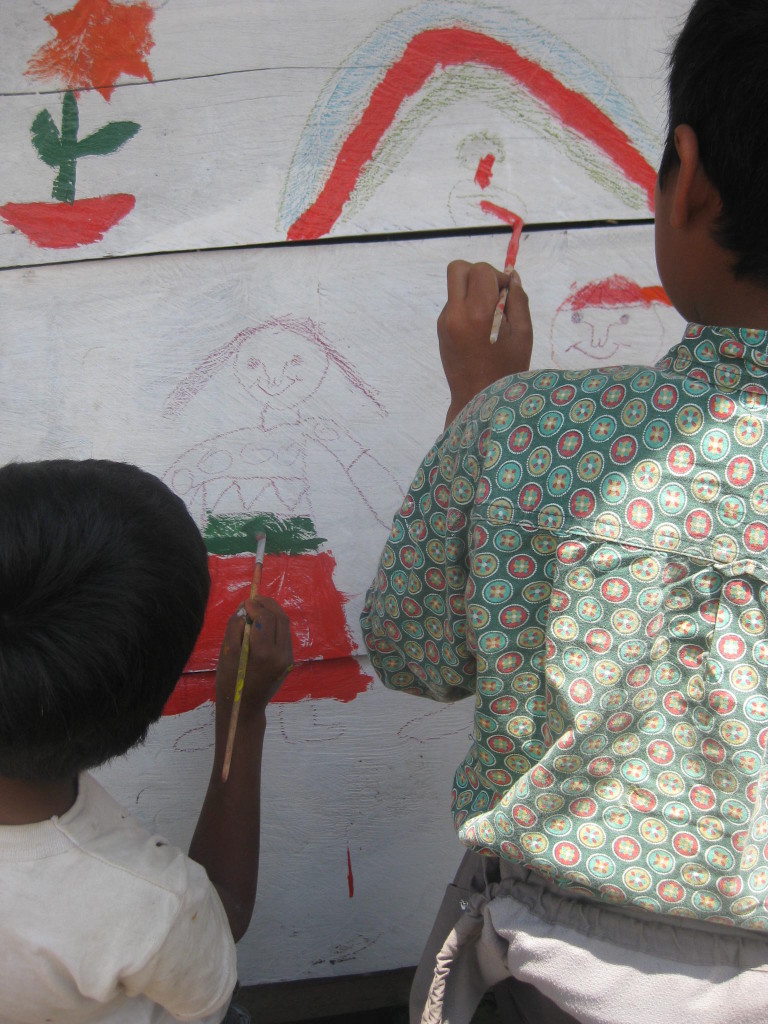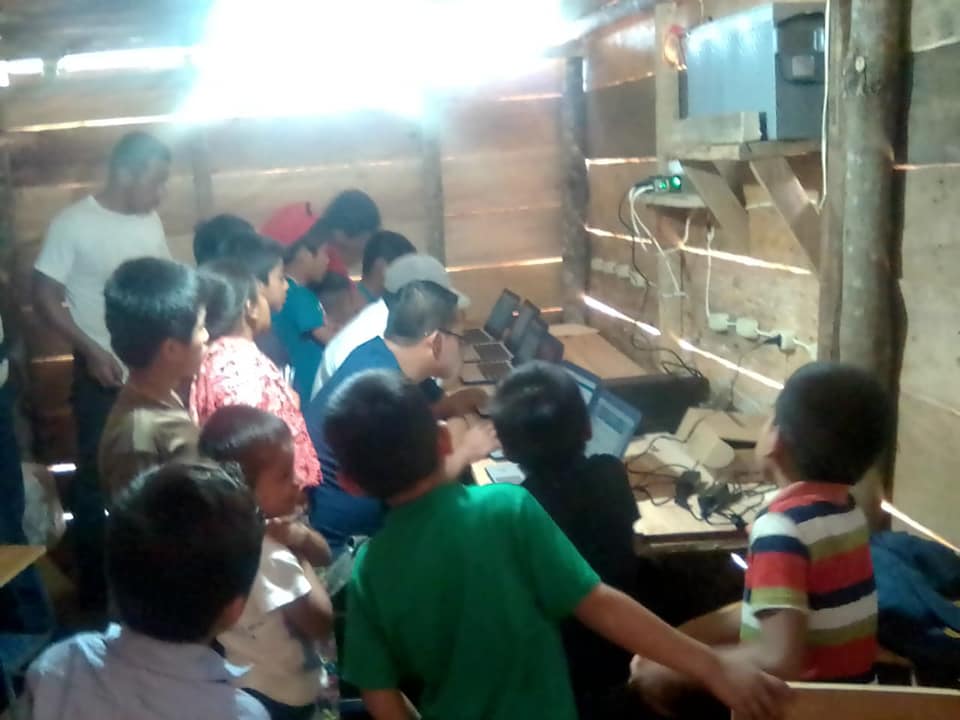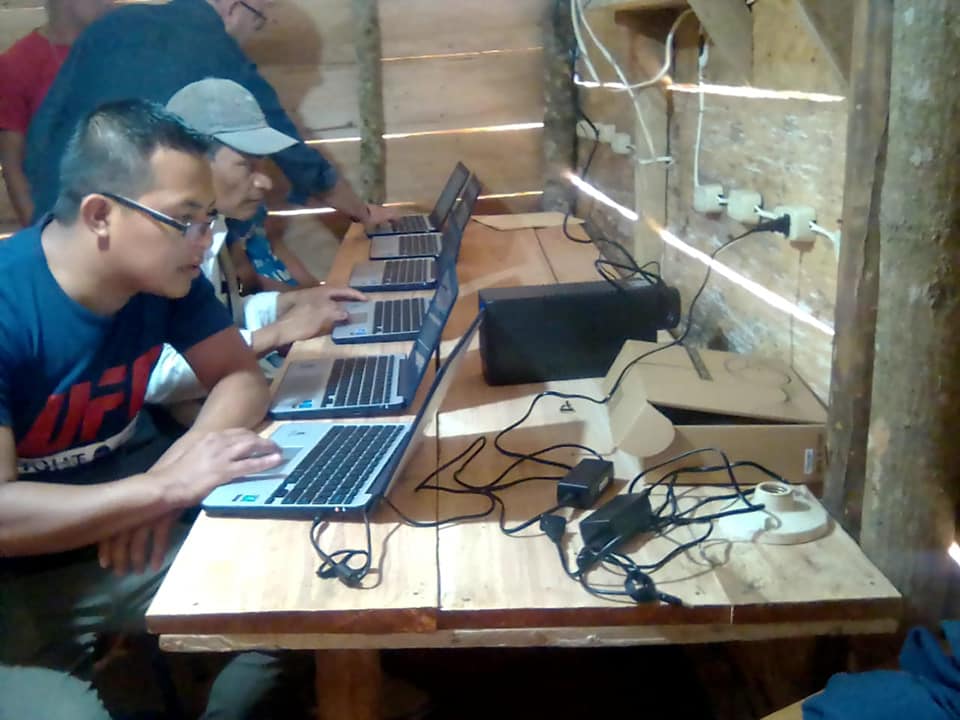Dear Barbara,
I would like to start by remembering Juana Sanchez. A Maya Ixil activist and organizer, Juana Sanchez lost her land and many loved ones during Guatemala’s genocidal civil war. After the Peace Accords were signed in 1996, she organized with other indigenous families to petition for the return of their lands as guaranteed under Guatemalan law. On June 30, 2006, after years of being ignored by the government, Sanchez helped lead over 200 families to participate in a nonviolent occupation of land claimed by the military. With Sanchez’s support the occupation formed the community of Sajbuta, building a school and refusing to back down in the face of repeated threats. Then in 2009 Juana was raped and murdered, and her children were left orphaned. Community members support each other in profound ways but most families were already struggling with extreme poverty and malnutrition and were not in a position to care for orphaned children. The community approached us to ask that we stand in solidarity with Juana’s children. Unfortunately we were struggling to fulfill other commitments we had made, and it didn’t seem possible that we could make a significant contribution to the Sanchez family. Then you stepped in and through your support we were able to work with local mentors to commit to providing the children with a monthly stipend and related support.
Ana Rebeca, Catarina, Diego and Axel in 2011
Diego, Catarina, Juan, Axel and Ana Rebeca in 2013
Catarina, Diego, Juan, Ana Rebeca and Axel in 2014
Catarina graduates as a Nurse Assistant in December, 2015
Ana Rebeca, 2018
Axel, 2018
Sanchez residence, April 2020
Diego and Ana Rebeca, April, 2020
Axel, April, 2020
Diego, Axel, Ana Rebeca and Catarina, April, 2020
Catarina, April, 2020
Sanchez family update, April 2020:
One development that we had not wished for is Juan and Santa’s decision to migrate to the United States in the past year. Millions of Guatemalans have fled poverty, hunger and violence to look for a better life and/or better pay in the US. My own great grandparents fled their home country to come to the US in search of opportunity. So it should not be all that surprising that the eldest of the Sanchez siblings have come to the US in an effort to improve the quality of life of their family. Our desire was to help them obtain a safe, healthy and sustainable life at home in Nebaj, Guatemala. Yet we most certainly don’t view our intervention as a failure. Without it the children may not have overcome extreme poverty and malnutrition to even have the opportunity to leave the country in search of a better future. It is also important to consider that as the eldest siblings, Juan and Santa had to take on certain responsibilities to support the family and were not able to fully take advantage of the same educational opportunities as their younger siblings.
Catarina is now working as a Nurse Assistant and also as the host of a radio news program four days a week. Diego is one year from graduating from a vocational high school with a focus on accounting. Axel and Ana Rebeca are in 6th grade. Everyone in the family is healthy. While Juan and Santa miss their family, they are glad they were able to arrive safely in the United States and find work. They look forward to saving enough money to reunite with the rest of the family within a few years. Catarina is now the head of the household, and is developing into a confident community leader and health professional. Axel and Ana Rebeca are particularly happy, bright children who have been supported and protected by their older siblings.
Despite your understandable decision to discontinue your donation in support of the Sanchez family, we will continue to provide the family with a monthly stipend through the end of 2021. This is tanks to your donation this year as well as smaller donations from several other donors. A group of community leaders has helped our organization as well as the family to manage the funds in a responsable manner. They will continue to serve as mentors for the family.
Mobile Schools:
If you are able to make a $6,000 donation for 2021, we will be able to provide one week of classes per month for an entire year in each of the following four communities:
San Jose el Tesoro:
This is a small community of 23 families that has faced significant repression, including an illegal eviction on October 10, 2019 and an arson attack on March 11, 2020. Livestock were stolen, dried harvests were burned, and growing corn and bean plants were cut down. The community is now in a desperate struggle against starvation. Our short term goal is to have no child starve to death in the community. We also believe they have a right to access to education, and with your support we will commit to bringing this to the community.
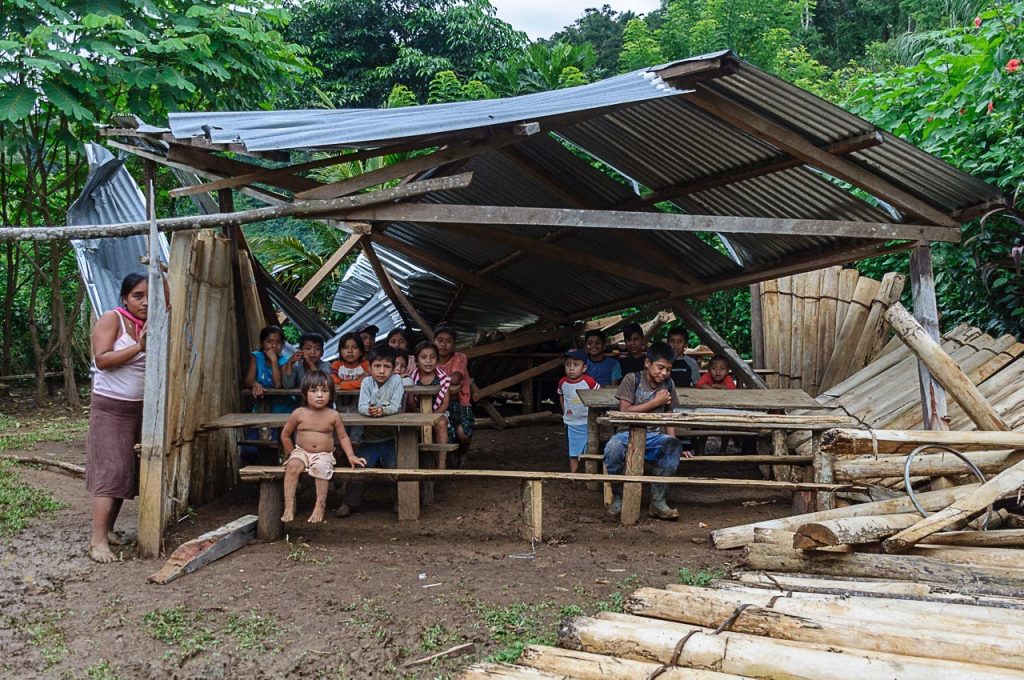 The above pictures were taken after the October 2019 illegal eviction in which every home in the community was destroyed. The pictures show people standing in front of the wreckage of their homes, and children holding teargas canisters that police used against the community. The last two pictures are of the school building. Despite this violence, the community has asked us to continue to prioritize education for their children.
The above pictures were taken after the October 2019 illegal eviction in which every home in the community was destroyed. The pictures show people standing in front of the wreckage of their homes, and children holding teargas canisters that police used against the community. The last two pictures are of the school building. Despite this violence, the community has asked us to continue to prioritize education for their children.
Three women went into early labor during the October eviction as a result of the traumatic stress. Although their babies may look healthy when I visited them months later, they are suffering from serious respiratory problems as a result of their lungs not having time to fully develop before birth. One of the many reasons to support schools is that it gives indigenous communities an extra tool to use in preventing government attacks. The government frequently denies the existence of such communities and says that attacks don’t even occur. But if there is a recognized school, the government is unable to deny the community’s existence. Knowing how to read and write also allows communities to access the legal system, file complaints, solicit clean water and basic services from the government, and opens up limitless other opportunities.
Balamche:
Balamche is another small indigenous community struggling against significant hunger and government violence, but continuing to ask us to promote educational access for their children. The following pictures from January of this year show the excitement and eagerness to learn of children in the community upon receiving basic school supplies:
One of the great things about the mobile school program is that it helps us implement basic water filtration systems that save lives. Teachers are trained in the implementation and maintenance of these simple yet highly effective systems. Water-borne illnesses are a major driver of starvation in indigenous communities in Guatemala. These systems prevent illnesses and also reduce the need to boil water, preventing deforestation and respiratory illnesses from smoke inhalation while boiling water. Below is a picture of a child serving herself safe drinking water in Balamche, followed by test results showing that the unfiltered water (on the right) is contaminated with dangerous bacteria while the filtered water (on the left) is not:
Bella Flor:
Bella Flor is an indigenous q’eqchi’ community located in the very hot Polochic Valley in northeastern Guatemala. Like most communities, the school has a dirt floor with makeshift desks as the picture below from the community indicates:
The abject poverty these communities have been forced into does not mean they aren’t worthy of education. Community members are used to making the most with a little, and they are anxious to use the resources they have to support the education of their children.
As I continue to develop my skills as a nurse, I have become acutely aware of the significant health obstacles facing children in these communities. In Bella Flor, most children are suffering from chronic malnutrition. They are more susceptible to illnesses and they will never be able to reach the full potential they could have attained had they been properly nourished. Yet education can serve as a foundation for building a better future for them as individuals and for the community as a whole.
Pancuz:
Pancuz is a larger community with approximately 200 school-aged children. This community is in a different situation than those outlined above in that the government recognizes their right to exist and is not threatening to attack them. However, the government still refuses to provide children from the community with access to school. Ironically, the only reason that the government recognizes the right to exist of the community is because of previous well-documented violations of the community’s rights. The short video below shows an illegal, violent eviction which occurred in 2011 which Pancuz community members survived. Such government attacks against indigenous communities are unfortunately common in Guatemala. What made this one different is that much of it was caught on video. The government claimed that this was a nonviolent eviction and the military was not involved. Using video evidence, various Guatemalan and international organizations including us accompanied the community in national and international court proceedings and forced the government to recognize what had happened. An important next step is gaining the right to education, and with your support we know that the mobile school will help achieve this.
Below is a 7 minute video showing some of the eviction. Be warned that it includes graphic content, showing the body of Antonio Beb. Beb was killed in the government’s “non-violent” eviction. Also note how tall the corn is. This crop which the community relied on for its sustenance was destroyed just weeks before it would have been harvested. As a result, numerous people starved to death following the attack. The video has some Spanish subtitles, but even if you don’t understand them the images are enough to give you a good idea of what happened.
We know that we can use these schools to force the government to commit to long-term educational funding because we’ve done it before
The Sanchez family is from the village Sajbuta in Nebaj, Guatemala. We worked together with the community to establish a four-room school fully funded by the government. Here are some pictures of us painting the school with kids from the community:
In most of the communities we work in there is no public school, clean water, or electricity. Yet by starting out with a GSP-funded school as a base, we have been able to establish all three. After helping to start schools in the communities Xejbal and Sibija, we worked with the community to secure government funding for the school. We also helped bring water filtration, solar power and even computers to these communities.
If you are able to donate $6,000 in 2021 we can use the mobile school program to provide direct education to hundreds of children in the four communities mentioned above, and use this program as a springboard to numerous other important achievements in these communities.
Thank you once again for your commitment to the Sanchez family and thank you for considering this request. I hope this message finds you safe and healthy.
Sincerely,
Palmer
